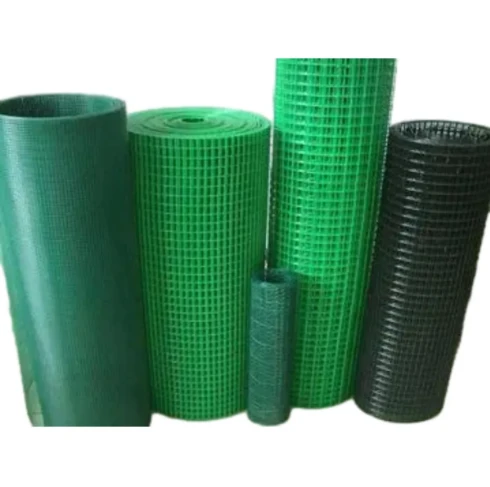joulu . 03, 2024 18:53 Back to list
Choosing the Right Fence for Your Agricultural Field Needs
Choosing the Right Fence for Your Field A Comprehensive Guide
When it comes to managing agricultural land, one of the most critical decisions a farmer or landowner will face is selecting the right fence for their field. A well-chosen fence not only enhances the aesthetic appeal of your property but also serves various functional purposes, such as keeping livestock contained, protecting crops from wildlife, and delineating property boundaries. In this article, we'll explore the various types of fencing available and how to choose the best one for your specific needs.
Types of Fencing
1. Barbed Wire Fencing This type of fencing is a popular choice for cattle ranchers. Barbed wire fences are generally affordable, durable, and effective at keeping livestock contained. However, they may not be suitable for all types of animals, as some can injure themselves on the barbs. It's essential to consider the type of livestock you'll be managing when deciding on barbed wire.
2. Electric Fencing Electric fences offer a modern solution for containing animals and protecting crops. They work by delivering a mild, safe electric shock to deter animals from crossing the boundary. Electric fencing is highly versatile and can be adjusted to various configurations and heights. It's particularly beneficial for keeping smaller animals, such as sheep or goats, contained while also acting as a barrier against wildlife.
3. Wooden Post and Rail Fencing This type is often seen on horse farms due to its strength and visual appeal. Wooden fencing can be substantial and offers a rustic beauty to any property. Although it requires more maintenance and is typically more expensive than barbed or electric fencing, its aesthetic value can enhance the overall landscape.
4. Vinyl Fencing If you're looking for a low-maintenance yet attractive option, vinyl fencing could be an excellent choice. Vinyl is resistant to weather, rot, and insects, making it a durable long-term investment. However, it tends to be pricier upfront, but its longevity and lack of maintenance may offset these costs.
5. Chain Link Fencing Chain link is a versatile, cost-effective option that provides good visibility while keeping animals contained. However, it may not provide the most aesthetically pleasing option for a field and is typically more associated with security than aesthetics.
Factors to Consider
fence for field

When choosing a fence for your field, there are several factors to consider
- Purpose of the Fence Are you primarily interested in containing livestock, keeping out wildlife, or marking property boundaries? Understanding the primary goal will help narrow your options.
- Type of Animals Different animals require different types of fencing. Large livestock such as cows may need sturdier fencing, while smaller animals like chickens may require something entirely different.
- Budget Fencing is an investment, and costs can vary significantly based on materials and installation. Set a budget that balances your aesthetic desires with functional needs.
- Maintenance Some fences require more upkeep than others. Wooden fences may need regular staining or painting to maintain their condition, while vinyl and chain link fences might only need occasional cleaning.
- Local Regulations Before installing a fence, it’s wise to consult local zoning laws and regulations, which might dictate the type, height, and placement of fencing on your property.
Conclusion
Selecting the right fence for your field can significantly impact your agricultural operations, the wellbeing of your livestock, and the overall aesthetics of your property. By carefully considering the types of fencing available, as well as the specific needs of your land and animals, you can choose the best solution to meet your requirements. Investing time and resources in the right fencing will not only preserve your crops and livestock but will also enhance the long-term productivity of your field. Whether you opt for traditional barbed wire or modern electric fencing, ensure that your choice aligns with your goals and local regulations for the best possible outcome.
-
Reliable Nails for Every Construction Project
NewsJun.10,2025
-
Reliable Iron Nails for Every Project
NewsJun.10,2025
-
Razor Wire Solutions for Enhanced Security
NewsJun.10,2025
-
Hydraulic Hose Ferrule Fittings: Key to a Strong Hydraulic System
NewsJun.10,2025
-
Field Fencing: Secure Your Property with the Best Solutions
NewsJun.10,2025
-
Euro Fences: The Ultimate Choice for Security and Style
NewsJun.10,2025









